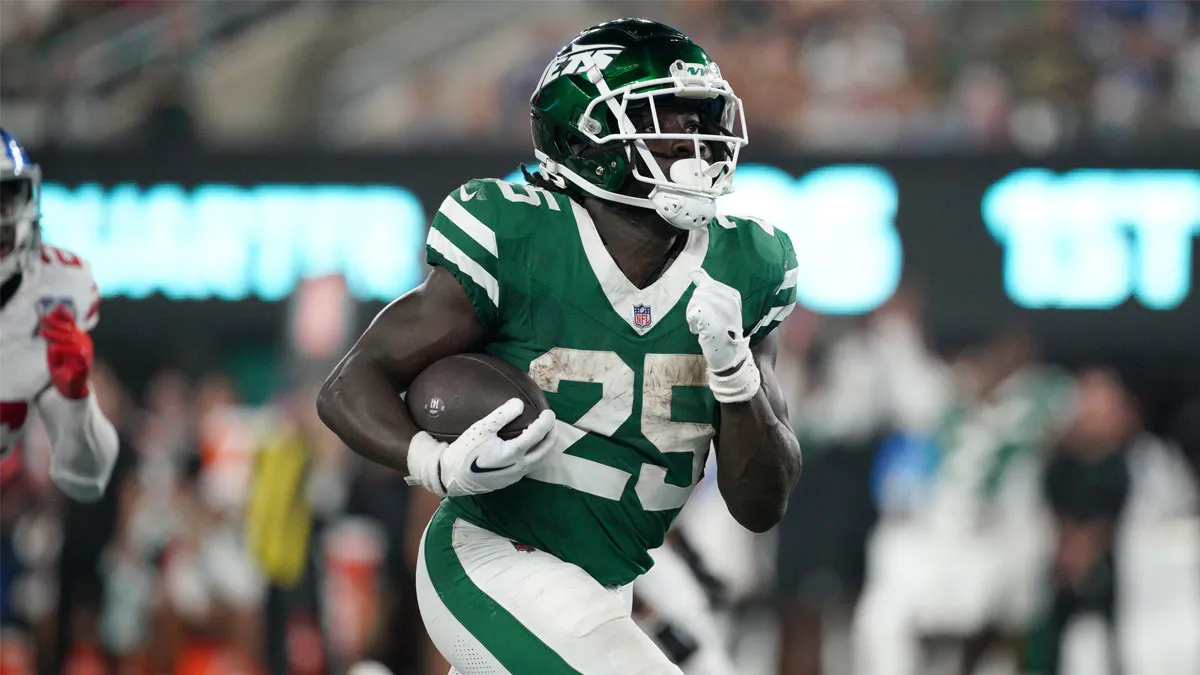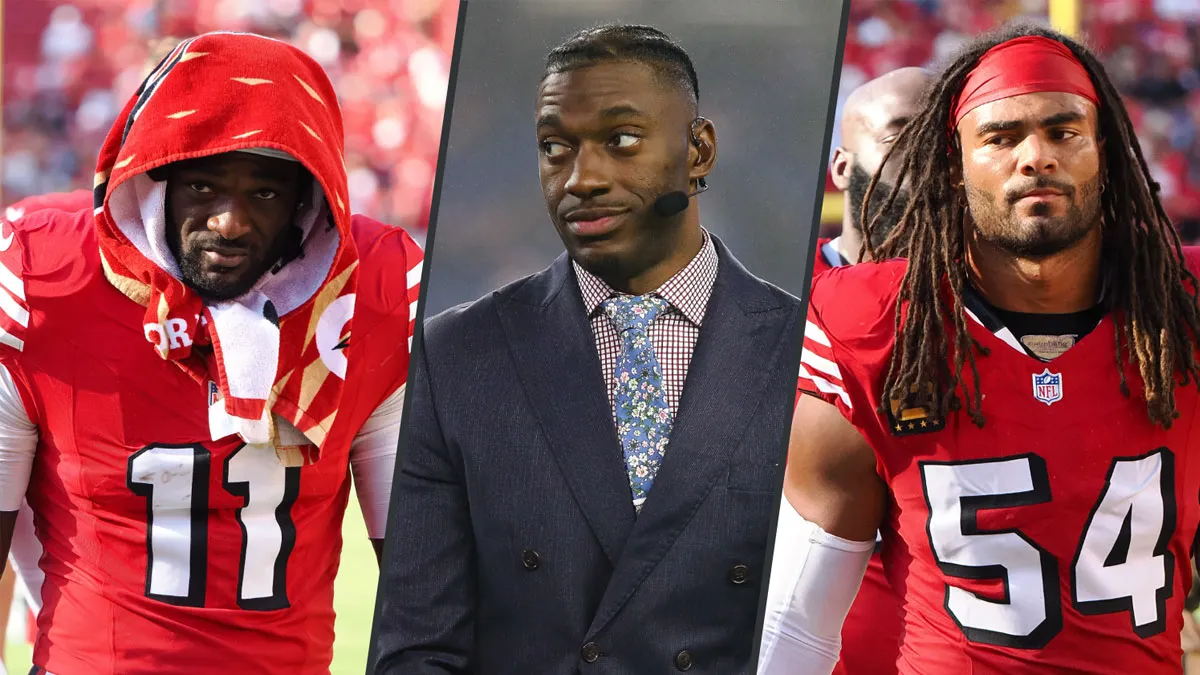With the 2022 NFL Draft set to take place today in Las Vegas, much of the spotlight is on the young quarterback prospects that will enter the league.
Led by Malik Willis and Kenny Pickett, the 2022 class is widely thought to be weaker than usual. Even if it’s a lesser group, teams don’t like to wait on quarterbacks in the draft – often over-drafting players who could be boom or bust.
Stay in the game with the latest updates on your beloved Bay Area and California sports teams! Sign up here for our All Access Daily newsletter.
With this year’s group in mind, what draft classes have produced the worst group of quarterbacks? Here are the five worst quarterback classes of the 21st century:
5. 2010
Round 1: Sam Bradford (No. 1), Tim Tebow (No. 25)
Round 2: Jimmy Clausen (No. 48)
San Francisco 49ers
Find the latest San Francisco 49ers news, highlights, analysis and more with NBC Sports Bay Area and California.
Round 3: Colt McCoy (No. 85)
Round 4: Mike Kafka (No. 122)
Round 5: John Skelton (No. 155), Jonathan Crompton (No. 168)
Round 6: Rusty Smith (No. 176), Dan LeFevour (No. 181), Joe Webb (No. 199), Tony Pike (No. 204)
Round 7: Levi Brown (No. 209), Sean Canfield (No. 239), Zac Robinson (No. 250)
This is a bleak way to start this list. You’re telling me there’s five worse classes than this? Yes, that’s exactly what I’m telling you. Bradford headlines this group after the Rams selected him first overall. He won Offensive Rookie of the Year and made $130 million in his nine-year career, but he never played a postseason game.
The rest of the class was full of backups and flameouts. Tebow had his moment of fame, winning a playoff game with the Broncos in 2011 before playing his final NFL game in 2012. Clausen, Kafka, Skelton, Webb and Robinson bounced around as backups for a few years. McCoy is the only player still active from this class, serving as a backup for the Cardinals, but he has just 33 touchdowns in 33 starts over his 12-year career.
4. 2015
Round 1: Jameis Winston (No. 1), Marcus Mariota (No. 2)
Round 3: Garrett Grayson (No. 75), Sean Mannion (No. 89)
Round 4: Bryce Petty (No. 103)
Round 5: Brett Hundley (No. 147)
Round 7: Trevor Siemian (No. 250)
When quarterbacks are drafted first and second overall, you expect more than what Winston and Mariota have shown thus far. Winston put up huge yardage numbers and huge turnover numbers with the Buccaneers before signing with the Saints. Mariota was benched for Ryan Tannehill with the Titans after four up-and-down seasons. Now, he has a chance to revitalize his career with the Falcons in 2022.
Beyond those two, this class didn’t provide much juice. Siemian has started 29 games and he’s now the Bears’ backup, which is a solid career for a seventh-round pick. Mannion has been a backup throughout his career, and he’s still in that role with the Vikings. Grayson, Petty and Hundley are out of the league after brief backup stints.
3. 2002
Round 1: David Carr (No. 1), Joey Harrington (No. 3), Patrick Ramsey (No. 32)
Round 3: Josh McCown (No. 81)
Round 4: David Garrard (No. 108), Rohan Davey (No. 117)
Round 5: Randy Fasani (No. 137), Kurt Kittner (No. 158), Brandon Doman (No. 163), Craig Nall (No. 164)
Round 6: J.T. O'Sullivan (No. 186), Steve Bellisari (No. 205)
Round 7: Seth Burford (No. 216), Jeff Kelly (No. 232), Ronald Curry (No. 235), Wes Pate (No. 236)
Undrafted: Shaun Hill
It’s getting ugly out here. The crowned jewel from this class was… Garrard? Or McCown? Garrard was a decent starter for the Jaguars, winning a playoff game in 2007 and making the Pro Bowl in 2009. McCown was the prototypical backup from 2002 through 2019, making 76 starts while playing for 12 teams.
At the top of the draft, Carr was a total bust for the expansion Texans. Harrington couldn’t save the Lions after four years as a starter and Ramsey didn’t work out in Washington (or anywhere else, for that matter). Hill, an undrafted QB from Maryland, was a backup for 15 seasons, which is great work if you can get it.
2. 2013
Round 1: EJ Manuel (No. 16)
Round 2: Geno Smith (No. 39)
Round 3: Mike Glennon (No. 73)
Round 4: Matt Barkley (No. 98), Ryan Nassib (No. 110), Tyler Wilson (No. 112), Landry Jones (No. 115)
Round 7: Brad Sorensen (No. 221), Zac Dysert (No. 234), B.J. Daniels (No. 237), Sean Renfree (No. 249)
The only year with one or fewer first-round quarterbacks since 2002? That would be 2013. And even one proved to be too many for this class. Manuel seemed to have the tools, he just never developed the way the Bills needed him to. The former Florida State QB retired in 2019.
Smith, Glennon, Barkley are still bouncing around as backups, but none of them were ever successful starters beyond short stints. Smith has been the most productive from the class, making 34 starts with the Jets, Giants and Seahawks. This draft class was bad, but at least everyone predicted that beforehand and there weren’t many reaches outside of Manuel.
1. 2007
Round 1: JaMarcus Russell (No. 1), Brady Quinn (No. 22)
Round 2: Kevin Kolb (No. 36), John Beck (No. 40), Drew Stanton (No. 43)
Round 3: Trent Edwards (No. 92)
Round 4: Isaiah Stanback (No. 103)
Round 5: Jeff Rowe (No. 151), Troy Smith (No. 174)
Round 6: Jordan Palmer (No. 205)
Round 7: Tyler Thigpen (No. 2017)
Undrafted: Matt Moore
The best quarterback from this class was an undrafted free agent. Enough said.
Russell was hyped up after he flashed all the physical tools at LSU. With the Raiders, he developed into one of the worst top picks of all-time. Russell started 25 games in three years before being released and never signing with another team. Quinn was similarly disappointing after a stellar career at Notre Dame, throwing just 12 touchdowns in 20 starts from 2007 to 2012.
Outside of the first round, Kolb and Stanton spent a few years as backups. Edwards had a run with the Bills, starting 32 games for Buffalo with limited success. Moore was the best of the bunch, as he was considered one of the league’s top backups before retiring after the 2020 season.


